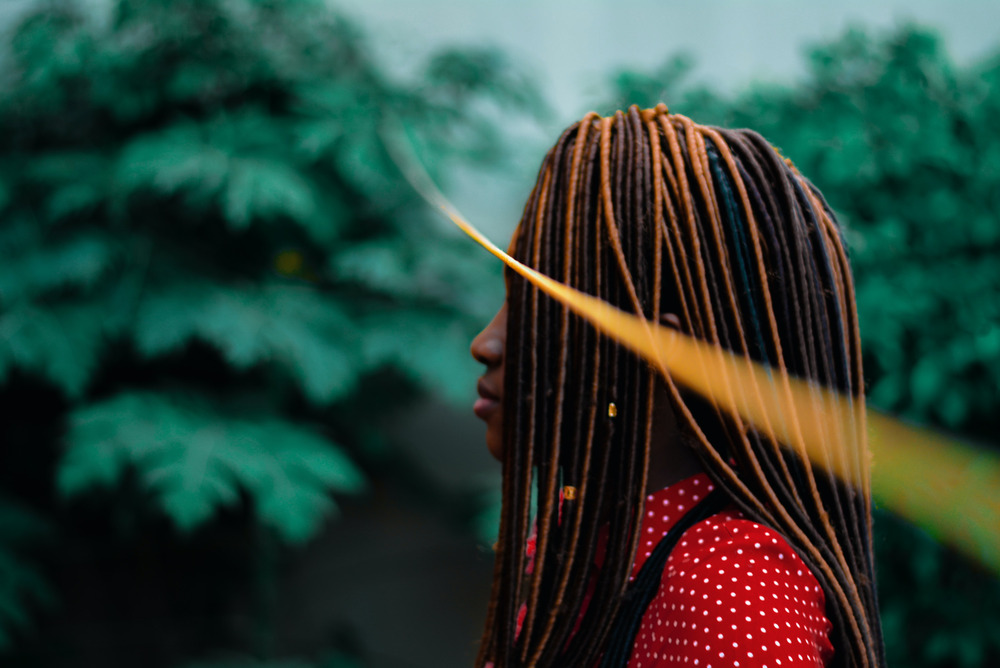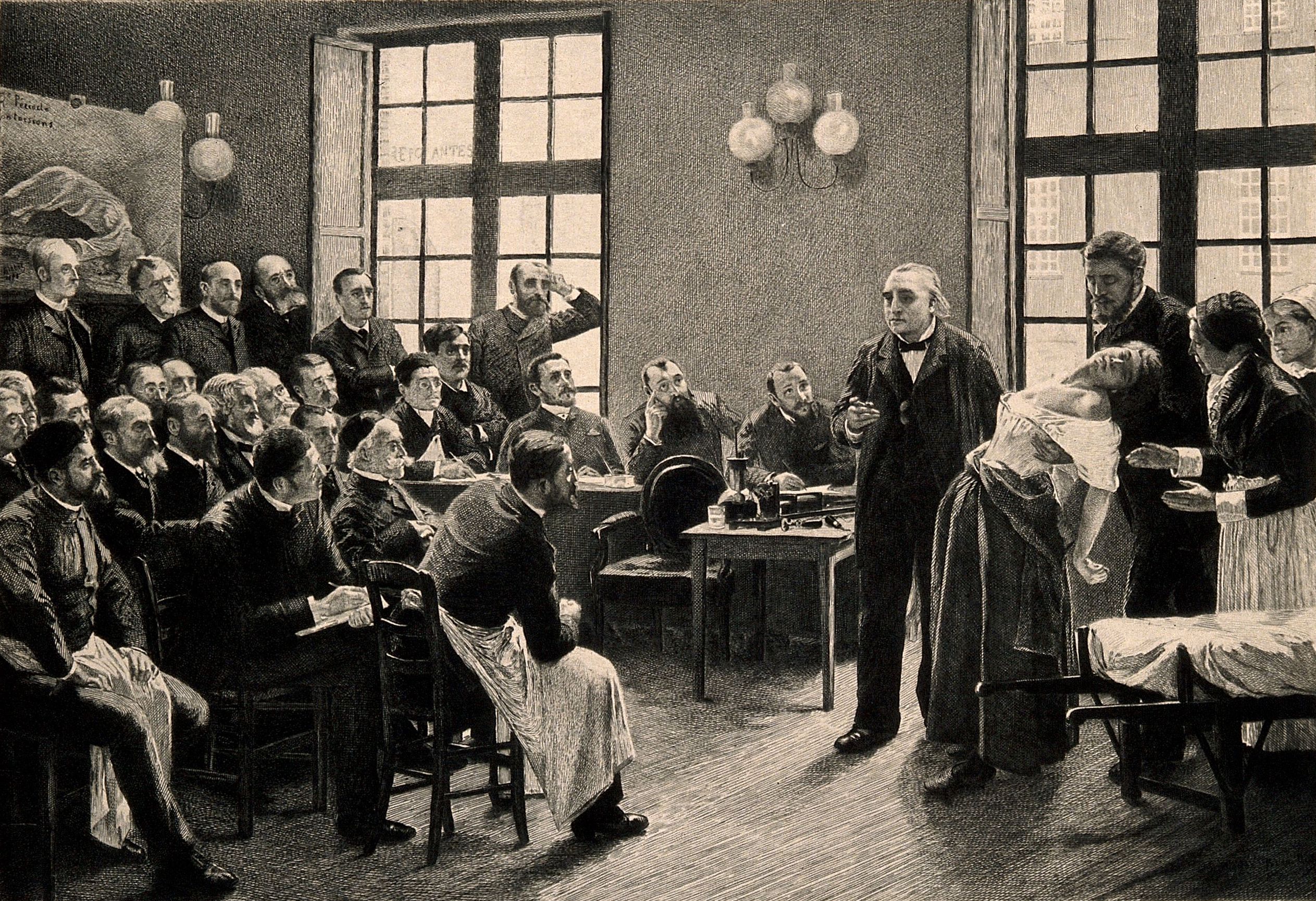interviews
Safiya Sinclair’s Journey to Finding Her Own Power
In her memoir "How to Say Babylon," the poet rejects the burden of being the perfect daughter and breaks free from her Rastafarian upbringing

Safiya Sinclair writes in her memoir How to Say Babylon, “The perfect daughter was nothing but a vessel for the man’s seed, unblemished clay waiting for Jah’s fingerprint.” The memoir, Sinclair’s first, is about her journey to shaping a future that isn’t limited by the idea of the perfect daughter or Rastafari’s tenets.
Raised in Jamaica in a strict Rastafari household under the watchful eye of a father obsessed with his daughters’ purity and keeping the corrupting influences of the Western world at bay, Sinclair knows the perfect daughter in her father’s eyes covers her body, treats it as Jah’s temple, remains obedient. At sixteen, a recent high school graduate, Sinclair is largely confined to her home with no direction or purpose and trapped by her father’s increasing paranoia and volatile behavior.
Sinclair discovers poetry and her voice and with the discovery comes the growing understanding that she wants to determine the woman she will become without the patriarchal views of her father’s brand of Rastafari. But Sinclair’s rebellion, which grows slowly, comes at a steep cost.
Sinclair, a poet who has won a Whiting Award, the OCM Bocas Prize for Caribbean Poetry, and the American Academy of Arts and Letters Metcalf Award in Literature, writes with grace and a poet’s lyricism about a woman finding her voice and her purpose.
I spoke with Sinclair about the Rastafari culture that both strengthened her father and oppressed her and the burden of being the perfect daughter.
Donna Hemans: I don’t think Rastafari culture is largely understood either in Jamaica or outside of Jamaica. Matter of fact, I’m Jamaican and there’s so much I learned from your memoir. What’s one thing you most hope readers understand?
Safiya Sinclair: Most people have an idea of Rastafari that is broad, not very nuanced. I knew when I sat down to write the book that I would be tackling some of those stereotypes and widening the view.
Most people think Rastafari defines Jamaica, but the Rastas are historically a persecuted minority in Jamaica. The government historically, would kick them out of their homes, their families would turn them away. They weren’t allowed to have jobs. They were forbidden from walking along the beach side when it was being developed for tourists. The nation wasn’t always very welcoming or accepting of them or the movement. We had a prime minister, Bustamante, in the ‘60s who said, “Bring all Rastas dead or alive.” And this led the army to go on a weekend-long rampage of pulling Rastas out of their homes, forcibly shaving them, cutting their dreadlocks. And the government didn’t really make amends for this atrocity until as recently as five years ago. And this wasn’t taught in schools either. When I sat down to write the book, I had to go back and learn my own history, learn how the founder of Rastafari, Leonard Howell—who founded the movement in 1930 when Jamaica was still under British colonial rule—had his compound raided by the government and burned to the ground because the movement itself is an anti-colonial movement. It’s founded on a dream of Black liberation, which they thought was dangerous.
So Rastafari in Jamaica have always been on the fringes. They’ve been the pariahs, they’ve always found themselves at the other end of a gun or a baton or a heel. And all these policies that move against them are what they call Babylon.
DH: One of the things that most fascinated me is the Rastafari push for liberty and freedom for Africans everywhere. Yet while your father talked about freedom from oppression, he created his own little world where he oppressed his own family. How do you reconcile the two?
SS: I’m not sure if I even reconcile the two. I think I’m still trying to come to terms with it.
Most people think Rastafari defines Jamaica, but the Rastas are historically a persecuted minority in Jamaica.
When I traced the history of Rastafari and Howell’s movement, he had this idea of Black independence, of Jamaica being an independent Black nation, of Black liberation. And that all scattered to the wind when the government burned the compound to the ground and burned the movement to the ground. When the movement scattered, Rastas became very closed off from society and Rasta men in particular became the living God for their own households. And because there is no written tenet or scripture of Rastafari, each man could then just take what he wanted from the different tenets of Rastafari and basically make his own gospel in his own house. And so, I think that’s what happened with my family and my father. He kind of authored his own vision of Rastafari for himself and for us that didn’t always manifest itself in positive ways.
DH: And yet he wasn’t always like that. What do you think contributed to the change in him?
SS: It must be a conflagration of many things: having daughters and being scared of this idea of them being corrupted or ruined or getting pregnant. He was really obsessed with my sisters and me not getting pregnant before we graduated high school, which I think was a direct response to his own mother, who became pregnant when she was a teenager. So he had this idea for a long time that that ruined her life. That’s one element of it—this tight control, which seemed always to me an irrational fear, which only extended to his daughters but not to his son.
A lot of it was simply about just living in a postcolonial society in which he didn’t always feel like he had autonomy or agency. Home was a place where he felt he could have those things. As a Black man walking through a society where he felt that he wasn’t always seen or respected or as successful a reggae musician as he perhaps wanted to be. I think those things manifested themselves in the tightening control and the paranoia.
DH: Your book touches on many themes—agency, liberation, womanhood, abuse, faith, purity—but there are four strong women who emerge from this period your memoir covers. And there are a few moments when you begin to see that there is another way of life. Can you talk about the moment that was most profound for you, that showed you could break free from your father’s hold?
SS: The moment came through poetry. I grew up in a household where my voice wasn’t always encouraged. My opinion was not encouraged or allowed. A lot of the cultivating of myself and my voice came through reading and writing poetry. When I started publishing my poems and people were actually paying attention to what I said for the very first time, I began to realize that there was a world out there and there was room for me to envision myself outside of the household, outside of Rastafari—a place where I felt like I was perishing. In poetry, I felt like I was thriving. And it was through poetry that I left home for the first time and went away to Spanish Town and to Kingston to go and study with the “old poet.” That was the first time I was away from my father and really began to nurture and care for my own thoughts even more.
DH: Sticking with this idea of womanhood and control, “empress” and “dawta” are terms of endearment, synonymous with girlfriend and wife. And any woman walking on any Jamaican road will likely hear it. But the terms carry more weight than that, don’t they?
I think the book talks to all women who are fighting for their own voice and who live in homes and countries where that’s being chipped away.
SS: It’s really the Madonnification of the women in the Rastafari household and this idea of being silent. Through your silence you are most pure, and through your humility you are most holy. And so then you earn the honorifics of “empress” and “princess.” But if you think about it, a man calling his partner or his wife, his daughter what does that mean? It’s infantilization. So the term of endearment itself is an infantilization of the woman who has to be somehow less empowered than the man to be endearing. I had to reexamine a lot of these terms that were being used in the household and then when they’re used outside of the household, they’re also different. Inside the household and outside the household both names and honorifics carried different weight, but both of them were bending my back to make me smaller.
DH: What do you think it means to be the perfect daughter? Have you figured it out?
SS: No, I don’t think so. I don’t think anyone should be striving for that. You are whatever person you are. And it was hard growing up in a household where you felt like you had to be perfect and pure and humble. It always seemed that it was an unachievable goal. I think I’m still trying to process and get rid of this idea of perfection. It’s something that I still struggle with in aspects of my life because I grew up being socialized that way.
DH: In your early teens, you concluded that “I would never be his perfect Rasta daughter. I was too headstrong, too curious. Too much of myself, and not enough of him.” But it would take some time for you to sever ties. How did you know for sure that you were done trying to be the perfect daughter?
SS: When I graduated, I felt like I’d done everything that was asked of me. And my life was in a bit of stasis. I was trying to get myself to college. I was trying to make something else of my life rather than just being a Rasta man’s wife and a Rasta man’s daughter, to define my future on my own terms. And I think the severing happened in the moment where my father said I was nothing but a Jezebel, and I would be nothing but a Jezebel because I don’t cook and clean. And in that moment, I said this is not how I ever want to be defined. My worth doesn’t rest on these things.
I had to break this cycle. As I looked at my sisters who were in the same kind of stasis, I could see their lives ahead of them because it was the one I was living. I wanted to burn that story down and write a new one for myself. So that for me was definitely the moment when I knew I was done with being silent and done with making myself smaller. I knew who I was and who I wanted to be. And I was ready to do anything I needed to do to get there.
DH: It was sometime before you sat down to write your memoir. Years earlier a professor suggested you weren’t ready. How did you know you were ready?
SS: That moment when I was in Charlottesville, I had just left home under really terrible circumstances and I was pretty sure I was never going to speak to my father again. He was right. I wasn’t ready. The hurt was still fresh. The wounds felt so deep. It seemed like the writing of the book would be a reaction because I was hurting and I didn’t want that. I wanted to feel objective enough to write the story because I knew writing the story meant I would have to understand my father and his childhood and his adolescence and why he chose Rastafari. I wasn’t there yet. I hadn’t processed everything. I wanted the book to be a positive act and not one born out of hurt. The moment I knew came to me through poetry. I gave a poetry reading at Calabash and it leads to a positive moment between me and my father that I didn’t think was possible. But when it happened I felt a release and I felt released. I felt okay, now I can write this story.
DH: And did the current efforts to roll back autonomy and agency for women have anything to do with your determination of the right time?
SS: I think the book talks to all women who are fighting for their own voice and who live in homes and countries where that’s being chipped away and taken away. I grew up in a household like that, where if I followed what my father and other Rasta brethren would have wanted for me, I would not be here talking to you today. I wouldn’t have a voice, a sense of being. My worth would be defined in a completely different way. I can only hope that the book joins the conversation in a positive way. And might give them some kind of fire and power to know they are not alone and another world is possible.









